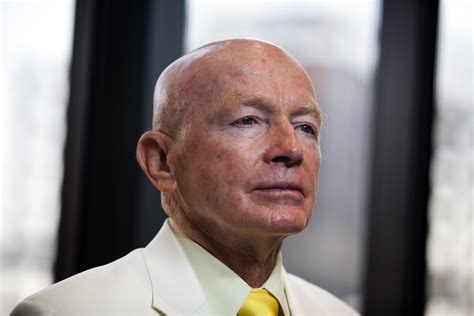A Quote by Charlie Munger
When someone takes their existing business and tries to transform it into something else - they fail. In technology that is often the case. Look at Kodak: it was the dominant imaging company in the world. They did fabulously during the great depression, but then wiped out the shareholders because of technological change.
Related Quotes
History is littered with great firms that got killed by disruption. Of course, the personal computer, a technology that first took root as a toy, got Digital Equipment Corporation. Kodak missed the boat for a long time on digital imaging. Sony was slow to get MP3 technology. Microsoft doesn't know what to do with open source software. And so on.
Long distances used to be a moat that both insulated and isolated people from workers on the other side of the world. But every day, technology narrows that moat inch by inch. Every person in the world is on the verge of becoming both a coworker and a competitor to every one of us ... Technological change is going to reach out and sooner or later change something fundamental in your business world.
Generally, the technology that enables disruption is developed in the companies that are the practitioners of the original technology. That's where the understanding of the technology first comes together. They usually can't commercialize the technology because they have to couple it with the business model innovation, and because they tend to try to take all of their technologies to market through their original business model, somebody else just picks up the technology and changes the world through the business model innovation.
My style also has a lot to do with theater because often I'm imagining I'm a character who is wandering by a wall and leaves a mark. Then I'm someone else, who 10 days later leaves another mark. Someone was angry and did this, and then someone came and painted over it, and then the sun bleached it out and the weather exposed it again.
If the best way to learn to succeed is to fail as fast as possible, then the second-best way is to watch someone else fail as fast as possible. Watching someone else screw up is a kind of rehearsal for your own eventual downfall. A close observation of someone else's attempt to resolve a difficulty is a great way to acquire real-world insight into whether and when to deploy their method in your own times of trouble.
I say the elite looks out of touch because it's kind of saying; look we'll manage all this for you. You know, we know best. We'll sort it all out for you. And then because people believe that doesn't meet their case for change and they want real change, social media and the way the relationship between people can come into a sense of belonging very quickly, that then is itself a revolutionary phenomenon. You see this around the world.
It's hard to find trainers to train, coaches to coach. Just because someone was great in the business doesn't mean they can teach someone else how to be great in the business; and just because someone wasn't great in the business, doesn't mean they can't teach somebody. I used to be a firm believer in the other.
Shareholder activism is not a privilege - it is a right and a responsibility. When we invest in a company, we own part of that company and we are partly responsible for how that company progresses. If we believe there is something going wrong with the company, then we, as shareholders, must become active and vocal.
Every now and then, a technology comes along that is so profound, so powerful, so universal, that its impact will change everything. It will transform every institution in the world. It will create winners and losers, will change the way we do business, the way we teach our children, communicate and interact as individuals.
Often we can change things, and a realistic attitude - including envisioning worse case scenarios - actually helps to accomplish that change. But if you truly cannot do anything about something, then why on earth would you want to make things even worse for you by falling into despair? It seems like adding a self-inflicting injury to the already existing one.
Innovation requires us to systematically identify changes that have already occurred in a business - in demographics, in values, in technology or science - and then to look at them as opportunities. It also requires something that is most difficult for existing companies to do: to abandon rather than defend yesterday.

































